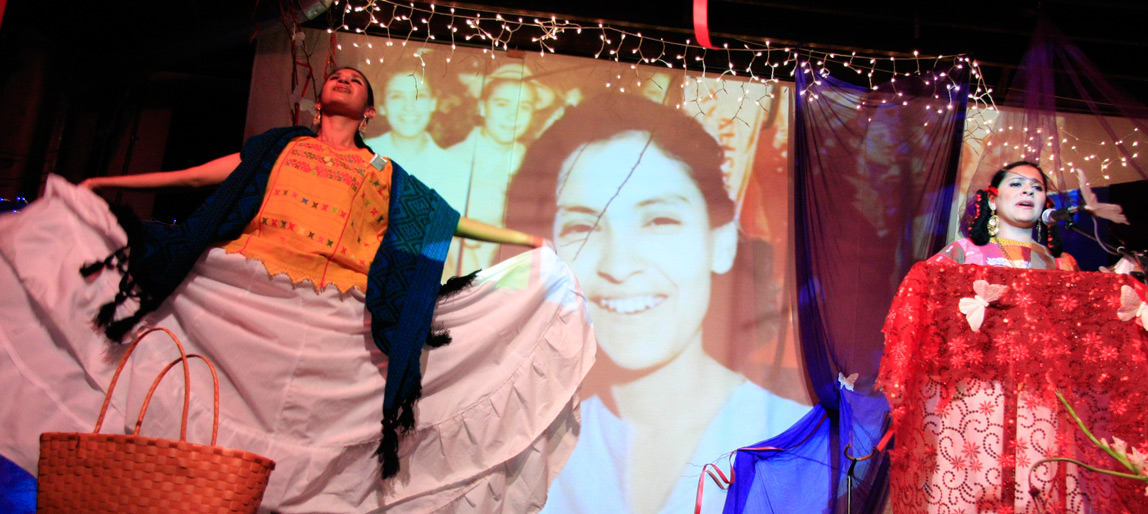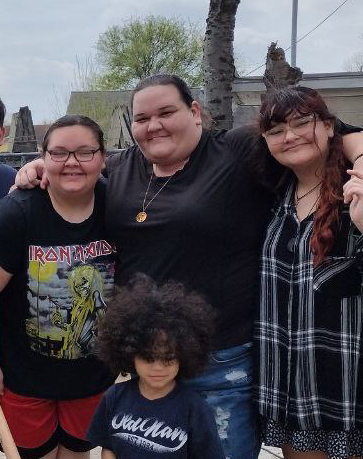Meet Us
Esperanza’s board and staff consist of dedicated individuals from all ages, races, ethnicities, sexual identities, religious and political ideologies, and socioeconomic upbringings. We came to the Esperanza at different times in our lives. Some of us have stayed a while, some have left, and others return and leave as their needs direct them. We are people surviving in a world overwhelmed with hate and anger, but we are also people who still hold on to hope. We believe in the role of art and culture in helping to share that hope. We believe that peace and justice can be reached, but we are people who also know that the road to esperanza, peace, and justice takes time and patience. Despite this, we are committed to the mission and vision of the Esperanza. We are Esperanza.
Staff
Graciela I. Sánchez
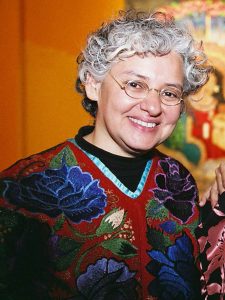
Director
Graciela follows in the footsteps of her mother and abuelitas, strong neighborhood women of color cultural workers and activists of San Antonio. As a Buena Gente of the Esperanza Peace and Justice Center, a community-based cultural arts/social justice organization, Graciela works with staff and community to develop programs that culturally ground working class and poor people of color, queer people and women, individuals who are survivors of cultural genocide. Facilitating conversations on issues of colonization, genocide, power, violence, racism, sexism, and homophobia among others, Graciela works with community members to develop and curate programs such as CineMujer, Uprooted: Tierra, Gente, y Cultura, Palestinians and Other Occupied Peoples, as well as organize gente to challenge oppressive laws in San Antonio, the United States and the world.
Westside Housing Advocate
Kayla Miranda, is a housing justice advocate organizing in the Westside of San Antonio. She resides at the Alazan/Apache Courts.
Susana Segura
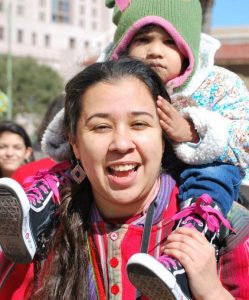
Arte es Vida Project Coordinator and Barrio Historian
Susana Segura has been organizing in the Westside community since 1988. Her work has been with social service agencies, labor organizations, health awareness services and cultural arts groups but always grassroots organizing. With the demolition of La Gloria, a historic building, she started working alongside community to preserve the working class neighborhoods while making sure not to gentrify the barrio. She is currently working with Esperanza Peace and Justice Center to restore Lerma's Nite Club, the longest running live conjunto music venue in the country, listed on the National Register of Historic Places. As an organizer she is involved in campaigns of social, economic and environmental justice struggles centered around people of color, the working class and the LGBTQ community.
Richard Aguilar
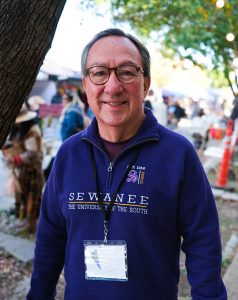
Fundraising Organizer
Conjunto Members
Graciela I. Sánchez

See above.
Gloria Ramirez
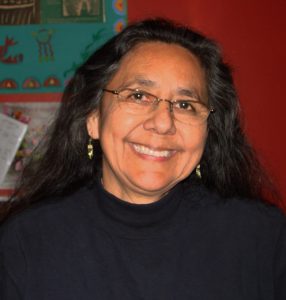
Is the editor of La Voz de Esperanza publication. She is a native of Austin and has lived in San Antonio since 1977, where she worked as a bilingual early childhood educator, until her retirement. She was active in the anti-war movement and Chicanx movement as a student at UT-Austin in the late 60s and early 70s where she earned her undergraduate and graduate degrees. She has been involved with the Esperanza since its opening in 1987. Currently, she is a member of the PreK4SA board of directors, the Esperanza's Conjunto de Nepantlera
Rachel Jennings
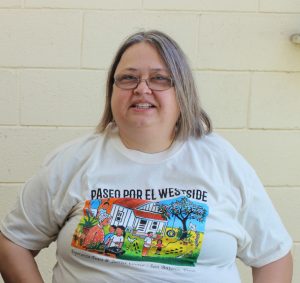
Rachel hails from the Appalachias. She came to San Antonio to teach at the University of the Incarnate Word and now works at San Antonio College as an adjunct professor in English.
Amy Kastely

Amy is a senior professor of law at St. Mary's University Law School and a member of the bar in Texas and New Mexico. She is a nationally recognized authority on contract law, having co-authored a widely-known text entitled Contracting Law. Professor Kastely also has written numerous articles exploring how law is shaped by narratives of race, gender, class, and other systems of subordination. Kastely served as lead counsel in Esperanza et al. v. City of San Antonio, the first case recognizing the importance of cultural rights in public arts funding. In addition, she has represented the Esperanza and numerous community coalitions in litigation and organizing projects involving a broad spectrum of important issues, including protection of the Edward's Aquifer; the right of communities to use public streets, sidewalks, and parks for cultural events and political expression; racial bias in the City's historic preservation practices; and the public's right to witness government deliberations and to hold government officials accountable to democratic values.
Rodolfo Rosales
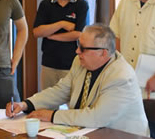
Rodolfo Rosales was born and raised in San Antonio, Texas. After receiving his BA from St. Mary’s University and his MA from Trinity University in San Antonio he received his Ph.D. from the University of Michigan at Ann Arbor. He received a Post-Doctoral Fellowship from the Ford Foundation/NRC and now is a Senior Scholar at the Ford Foundation/NRC. In the natural course of events he was then appointed to the faculty at the University of Texas at San Antonio where he is now retired as an Associate Professor. He is the author of The Illusion of Inclusion: The Untold Political Story of San Antonio (UT Press, 2000) and co-editor of Latino Urban Agency (Univ of North Texas Press, 2012).
Ana L. Ramirez
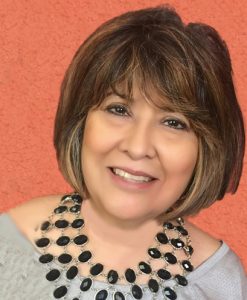
is a retired educator from the San Antonio Independent School District. After having taught English at Lanier, she became an administrator - Middle School & High School Principal and Human Resources Director. She then was a Teacher Certification Officer at University at the Incarnate Word and Assistant to the Dean of the College of Arts & Sciences at Our Lady of the Lake University.
Nadine Saliba
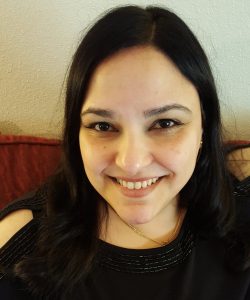
Nadine is a Lebanese-Syrian immigrant who has been working with the Esperanza to educate San Antonio and South Texas residents about the struggles in the Middle East. A translator, Nadine works to bridge the gap between “American” and “Arab American” through cultural understanding and translation, literally and figuratively. She writes for La Voz de Esperanza and speaks in the community on the plight of Arab immigrants.
Dennise Frausto

Dennise Frausto is an adopted San Antonio, Westsider who was born in Mexico City and raised in Los Angeles California. She has lived in San Antonio for 19 years and she now calls this beautiful city home. By day, Dennise is an educator working for children with visual impairments as a braillist and is currently completing the coursework to become a certified braille transcriber by the Library of Congress. She holds degrees from San Antonio college in Child Development/Early Childhood Education and from the University of Texas, San Antonio in Mexican American Studies with minors in African American Studies and Bicultural Studies. Dennise is also a beginner in the world of writing and performing. The work she produces is pulled from lived experiences and hopes that documenting her story will change the narrative of what we know as normal. Serving as a Board member for the Esperanza Peace and Justice Center will help her share these skills and knowledge with her community directly.
Sylvia Mendoza

Sylvia Mendoza, Ph.D. was born and raised in Yanawana/San Anto. She is the daughter of Juanita Mendoza and Armando Baladez Mendoza (QEPD) who were her first teachers who modeled what it means to love and show up for your gente and to care about and document your history and cultura. From their teachings and from the femtorship of many brilliant, fierce Tejanas/x and Chicanas/x, Sylvia became interested in and dedicated to Mexican American Studies, which she currently teaches at UTSA. She lives in the Westside with her dog Freddy Fender and is excited to serve on the board, as well as serve the Westside and the larger SA community.
Lilliana Saldaña
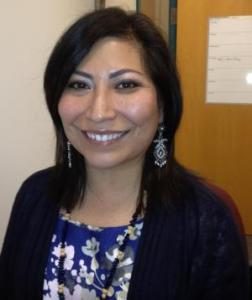
Lilliana Patricia Saldaña is a Chicana activist scholar raised in San Antonio’s Southside. Saldaña attended Boston University where she earned her bachelor’s degree in English and International Relations, with a concentration in Latin American Studies and a minor in Journalism in 1998. Shortly after completing her studies, Saldaña worked at a dual-language school in San Antonio’s Westside and earned a master’s degree in Bicultural-Bilingual Studies from the University of Texas at San Antonio in 2002. During her undergraduate and graduate studies, she was involved in numerous campus-activist projects and worked in community settings, synthesizing her passion for research and social change. As a doctoral student at the University of Wisconsin-Madison, Saldaña worked with Latina/o families to establish Nuestro Mundo, the first dual-language school in the city, and Formando Lazos, community development project with Latina immigrant mothers. She earned a doctoral degree in Human Development and Family Studies, with a minor in Chicana/o families, schools, and communities, from the University of Wisconsin-Madison in 2010. Her dissertation—“¡De mi barrio no me voy!: The identity and consciousness of Mexican American teachers at a dual-language school—examines the life histories of Raza teachers and the ways in which they transform, negotiate and reproduce the culture of schooling in San Antonio, Texas.

